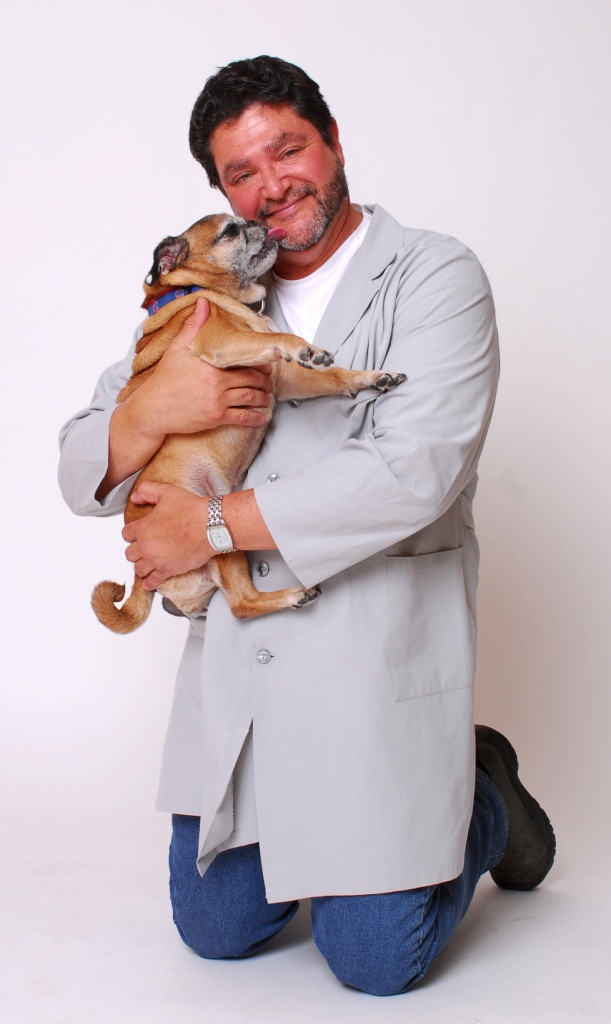A plan to put Corrales at the heart of the ‘no-kill’ movement
Organizers say that dream is about to become reality

Corrales is planning to turn its “animal-friendly” slogan into bricks-and-mortar truth For years there’s been talk in the village about creating an animal shelter to ease the burden
on overworked private rescue groups. That talk is about to materialize in a big way, says Phil Padrid.
A former professor of veterinary medicine at the University of Chicago who ran a veterinary hospital in Chicago—and runs a group of hospitals here in the Southwest—Padrid was tapped to lead the campaign about six months ago. Already, he has added to the working group of local rescue organizations some high-powered fundraising muscle.
The loose-knit FOCAS (Friends of Corrales Animal Shelter) is prepared to act, he says. And when fundraising begins in earnest, everyone in Albuquerque and beyond is going to hear about the groundbreaking Corrales animal refuge—the cornerstone of the community’s “no-kill” philosophy.
What gives Padrid such high hopes is the makeup of the team, which includes the kind of
hidden talent for which Corrales is known: professionals in public relations, advertising, Ivy
League endowments, architectural design of veterinary facilities, and legal expertise, all being
provided for free—Padrid’s dream team. The doctor sat down with The Bosque Beast recently
to share some of what FOCAS has planned.
The rescue groups have been talking about this idea for years, but there is still no building
site and no indication of who will run this facility, or how. People must have a million questions about how it will all work.
We’ve spent six months organizing, and so far our first goal is to identify a piece of land. We are actively talking to people now about various arrangements, from outright donation to leasing and purchase. And we’re very acutely aware of the NIMBY issues, zoning issues—and enormously respectful of the proper process and gaining the support of the Village Council.
We’re currently filing for 501(c)(3) status. When we have an agreement for land and a business
plan, bylaws, then we can start fundraising. Then we will have a vision we can articulate to the village and to Albuquerque. Then you’re going to see a major effort. But we want this to be a real thing that people can support.
Will this facility take every animal that needs a home? Won’t that greatly increase the number of animals dumped in Corrales who end up being unadoptable?
The original idea that the rescue groups came up with was a shelter, and their vision was that
it’s “no kill.” But when you consider what that means, you would need unlimited resources into perpetuity. So we refocused on what people really want: a sanctuary, a place where unwanted animals come to live out their life. That’s the vision. But it’s only the start.
There are obvious structural problems when you have multiple species with varying needs. And we’re not there yet, to delineate how all that will work. But we don’t want to let the great be the enemy of the good, as the saying goes. If we need 50 acres [to care for all these animals] but only get three, that’s better than what we have. Because right now it’s only individuals taking animals into their homes.
Over the last ten years there have been about 3,500 animals come through the system, and
they’ve adopted out about 90 percent of them. The problem is that when you have multiple
animals in a [foster] home, it’s not an ideal situation for anyone. On a personal level, a number of people have made enormous personal and financial sacrifices to do what they do.
Their desire is not to lessen that load, but to help more animals find a forever home.
There are so many rescue groups already competing for scarce funds. How will you be able to raise money?
We feel that cooperating with all the other groups is very important—it’s not just competition. Our mission is slightly different: We’re going to focus on geriatric animals, because the main reasons that animals are given up are problems of health or temperament, which worsen with age. For the last ten years, people involved in rescue in Corrales have made sure no animal is sent to be euthanized, and we are fortunate in Corrales that our animal control officers have been totally dedicated to that.
There’s a spirit in this community that’s totally different, and with the [May 24] resolution
making this New Mexico’s first no-kill community, it just makes sense. We want to support the Village Council in their vision, and we applaud the mayor and council for having this forward-looking view. As we develop this, we certainly hope that the village, county, and state will see how it can bring value to the community. We plan to have an education program at the refuge, bring in schoolchildren, all of which will increase tax revenues as more and more people realize this is an animal-friendly destination. We certainly hope the public and private sectors will recognize the value that it contributes.
That’s why I think it will work—because Corrales is unique. Mine is not the only family who
saw the “animal-friendly” sign at the entrance to the village and said, This is it. We live in an oasis. A mile and a half from Cottonwood Mall, we have camels, alpacas, guinea hens running
free—and we love it that way. So from the idea of the sanctuary, we’ve refined it to something
called a refuge. But it’s really the same thing. In distinguishing ourselves, the refuge feels
good. But it is for domestic animals—not coyotes, for example. And as they show up, they
need a place to live. All critters in Corrales need a home.
To my knowledge, there has not been [elsewhere] a sanctuary put together by a group of
people with such crazy talent. And if you were to think of the group of people you’d want
to put this together, how would you even find that? But the movers and shakers behind this
effort are Corraleños who have been here forever. The only way this will work is if it is part
of the community, and the community sees this as a great thing for the village. Then we will
be able to help animals in a way that right now we cannot. Because it’s not about me or about
the group. It’s about the animals.
Phil Padrid is a veterinary pulmonologist and former professor of veterinary medicine at the University of Chicago School of Medicine. He moved to the Albuquerque area to run a regional network of animal hospitals.
